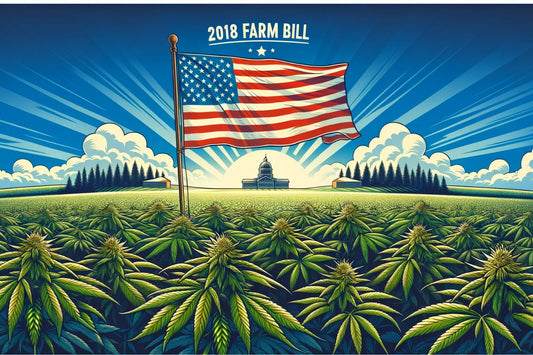Introduction to federal cannabis reform and its challenges
As the landscape of cannabis legalization shifts across the United States, with numerous states legalizing medical and adult-use cannabis, a looming question arises about the potential federal legalization and de-scheduling of cannabis. This imminent shift in policy, while aligning with public opinion and state-level reforms, brings forth significant concerns about its impact on social equity and small cannabis businesses. A recent report by the Parabola Center for Law and Policy highlights these concerns, emphasizing the need for a thoughtful approach to avoid unintended consequences on the current state-based intrastate cannabis markets.
The double-edged sword of wider cannabis reform
The push towards federal legalization is not a novel concept within the cannabis community. However, the intricate details and potential repercussions of such a move are complex. The primary concern revolves around the transformation of existing intrastate cannabis markets into a unified national market. The Parabola Center's report, titled “How to Federally Legalize Cannabis Without Violating the Constitution or Undermining Equity and Justice,” serves as a blueprint for Congress, aiming to protect the interests of those in the cannabis industry and maintain the progress achieved in states with legal cannabis laws.
Impact on small businesses and market dynamics
The American cannabis market, currently valued at $33.8 billion, is predominantly driven by small business owners. These businesses, numbering over 10,000, provide approximately 400,000 jobs across the U.S. The report warns that without careful planning and protective measures, federal legalization could lead to the consolidation of the cannabis industry, favoring large corporations and potentially undermining the small businesses that form the backbone of the current market.
Protective measures for an inclusive cannabis industry
To mitigate the risks of market monopolization and ensure the preservation of social equity, the report makes key constitutional policy recommendations. These include preserving states' rights to set their own cannabis laws, giving priority to small, social equity, and worker-owned cannabis businesses in interstate commerce, and avoiding violations of the U.S. Constitution's Dormant Commerce clause, which prohibits states from restricting interstate commerce.
Parabola's recommendations for federal cannabis legalization
Among the recommendations, the report highlights the importance of not preempting state laws, even those that may affect interstate commerce. It also suggests a registration system for state-licensed entities promoting industry diversity and supporting disadvantaged individuals and communities most affected by cannabis prohibition and enforcement.
Avoiding constitutional conflicts in legalization
Concerning the Dormant Commerce clause, the report advises that state regulatory structures could face liability under federal legalization if they restrict their industries within state boundaries. This calls for a delicate balance in federal and state regulations to avoid constitutional conflicts.
Urgency in addressing potential risks
With the potential for dramatic changes in the legal cannabis landscape post-federal legalization, there is an urgency to address these risks proactively. The report stresses that without explicit federal protections for state-based intrastate markets, the industry could witness a significant shift towards monopolization by large companies, thereby threatening the diversity and inclusivity efforts made by states so far.
The future of cannabis equity and inclusivity
Despite the benefits of federal cannabis legalization, the report cautions that such a market may not prioritize the social equity goals central to many states' current policies. Therefore, it calls on Congress to protect state-level cannabis equity programs and limit market consolidation, emphasizing the importance of maintaining an equitable and inclusive industry.










